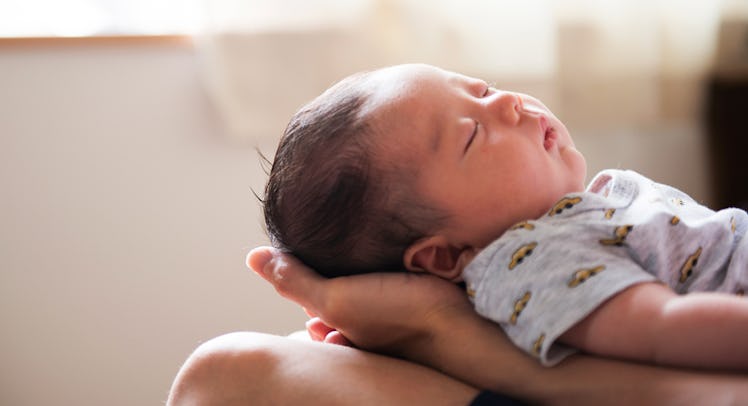More Parents Are Choosing Only to Have One Child. But Why?
It's not your imagination; the rise of "One and Done" is certainly a trend among 21st-century parents.

According to 2018 numbers, more American families are choosing to stop the number of children they are having at exactly one. Parent Magazine is calling this “The Rise of One and Done,” and if you’re a family that is planning on only having one kid, there are compelling reasons to do just that.
According to recent statistics compiled by Statista, in 1970, the average American family had 2.5 children, and in 2018 that numbers is 1.9. This means, either Americans have gotten worse at dividing individual children into portions, or we’re having fewer kids. Families that choose to have only one child sometimes face stigmas from people with bigger families, and if you’re unable to have more than one kid, you might feel guilty that you’re not supplying your little one with a sibling. Parents with this kind of guilt tend to think that without a sibling, their kids won’t learn to be empathic, and will turn into selfish little monsters.
But some studies, including one conducted in China in 2017, indicate that there’s no data to support the idea that only children are selfish at all. Furthermore, there are other data-driven studies that suggest only-children have a higher probability of being more creative and all-around more agreeable. If you’re the parent of an only child, these numbers are comforting and probably support your bias that your only-child is the most special human being in the universe. (As a parent of an only child, I, of course, feel comforted to know that I’m part of a trend.)
However, the real reason why there’s been a decrease in the size of the average American family since 1970 can’t just be because it’s trendy and more studies prove that only children are nifty. Does the notion of being a family of four just scare the shit out of 21st-century parents? Maybe. Are parents more afraid about the future than our parents where? That seems to totally be true.
In John Hodgeman’s book Vacationland, he writes, “Only children have a special relationship with their parents if they aren’t divorced,” and goes on to describe parents as “not so much your parents as weird older roommates.”
Maybe that’s the difference. Maybe since the 1970s, American families have — by and large — started to think of their children more like other people rather than annoying little kids. Despite helicopter parenting and snowplow parenting and all sorts of other overly involved types of parenting named for vehicles that are difficult to drive, it seems like if there’s one trend worth celebrating, it’s that parents seem to give a shit about individual kids more than they did 40 years ago. Sometimes that might mean we’ve only got bandwidth for one kid. And, maybe that’s okay and we can all stop feeling guilty about it.
This article was originally published on